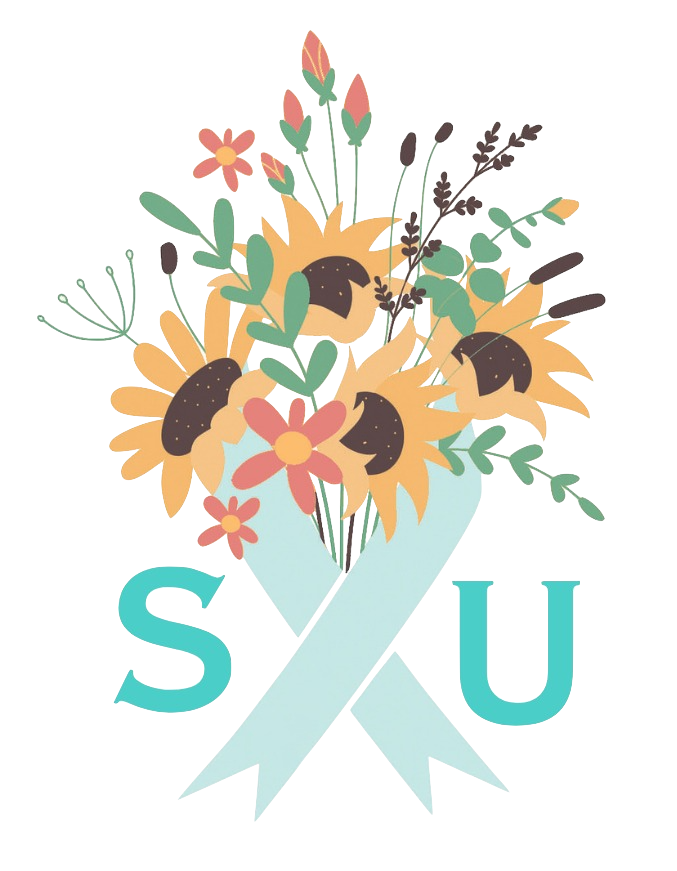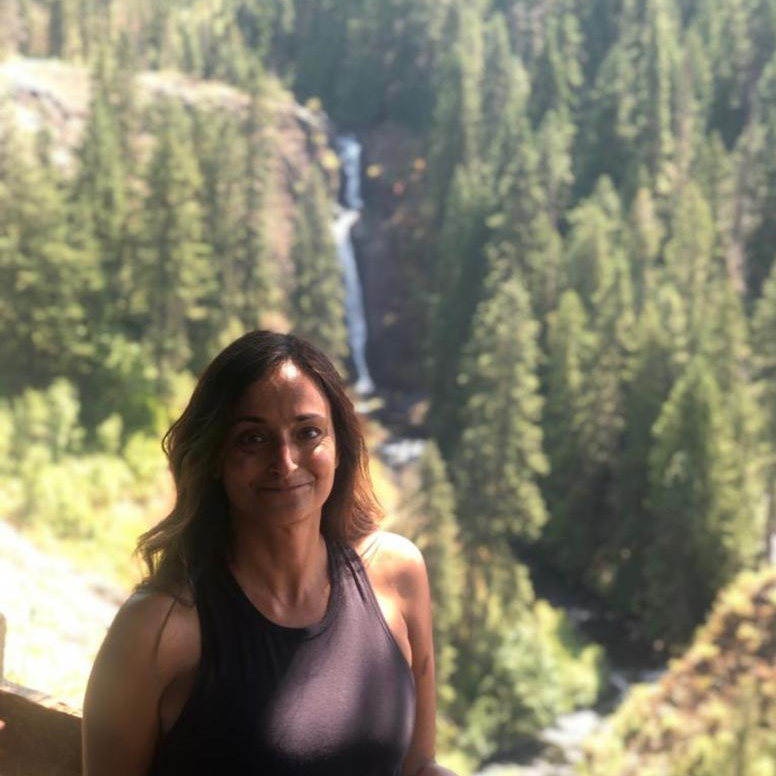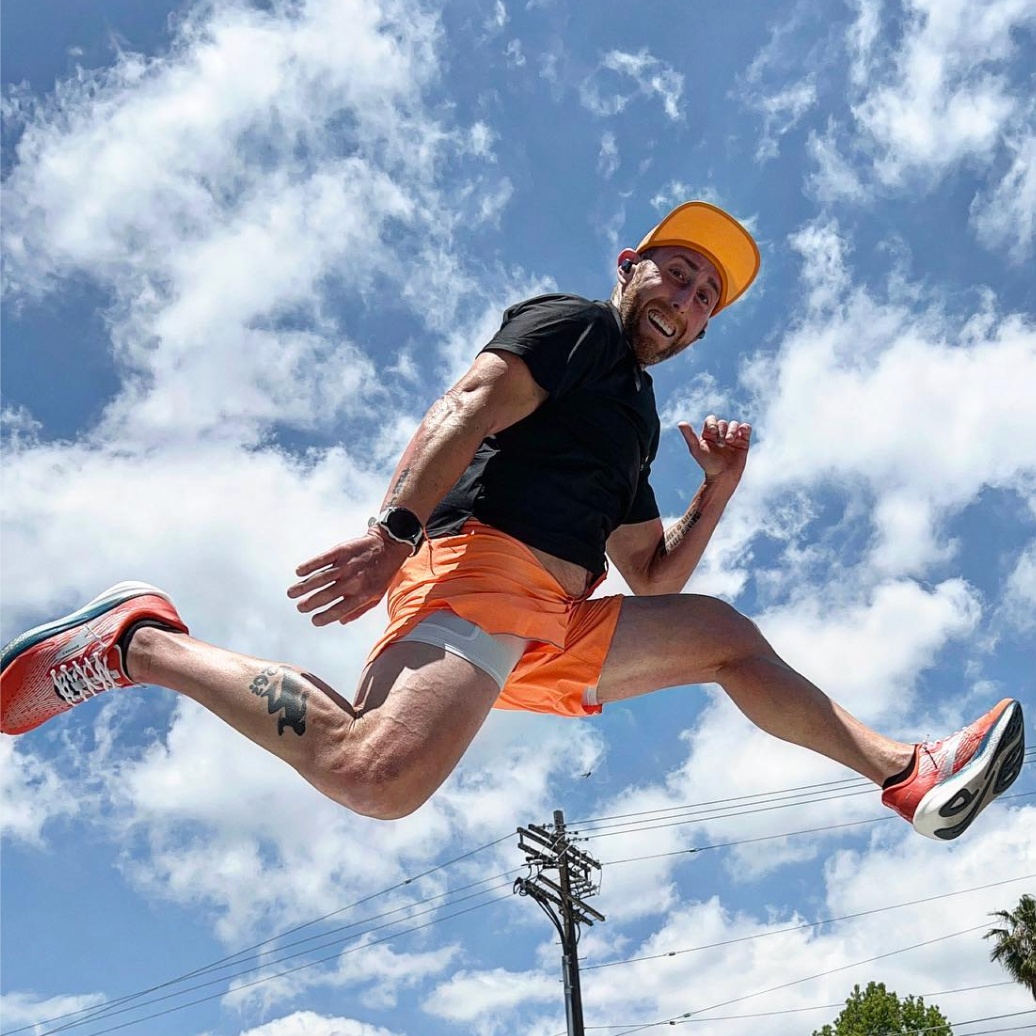Cold Springs, New York (United States)
MARIA CESTARO
Scleroderma Stories Issue 4
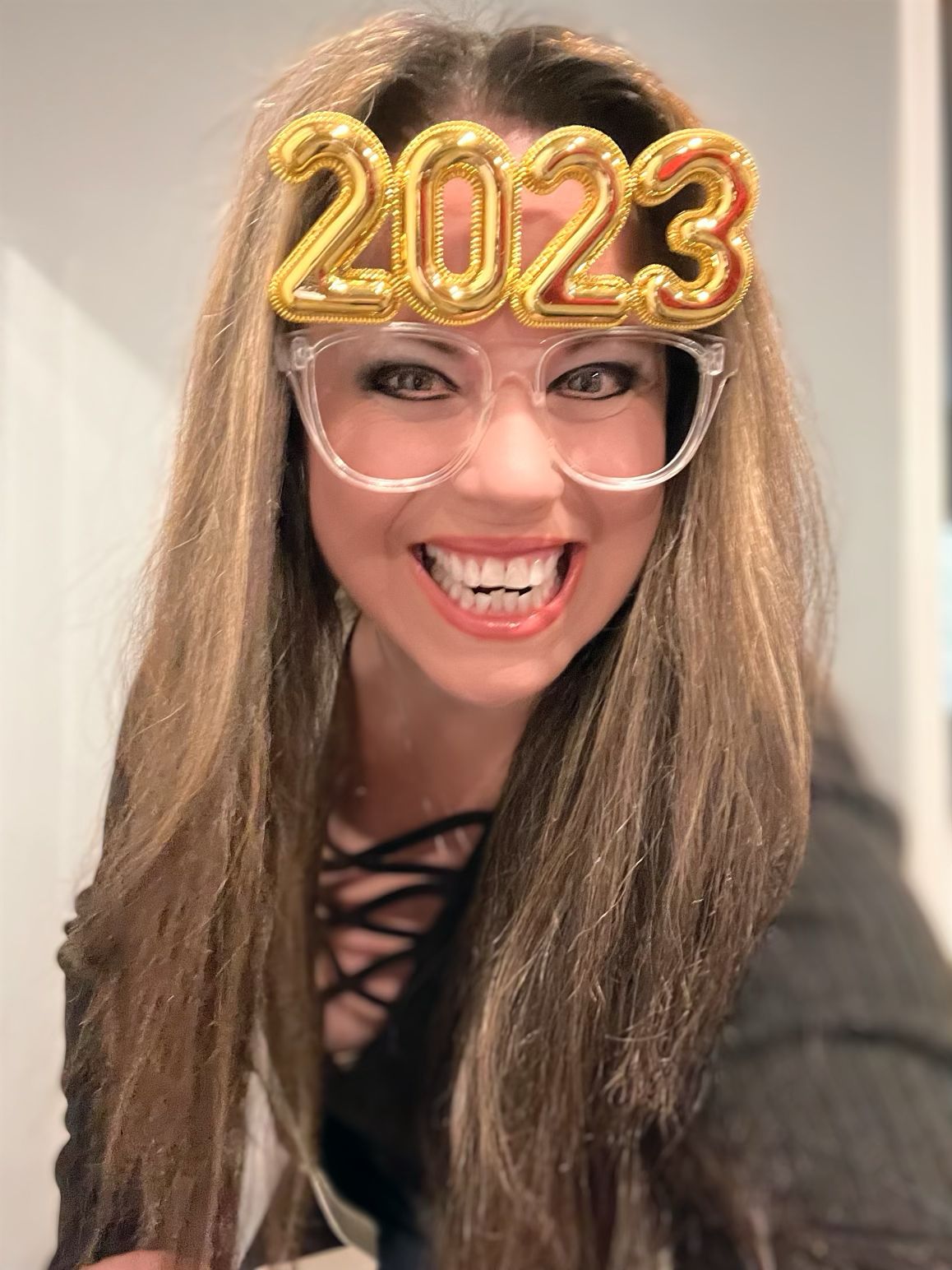
Please introduce yourself
I’m Maria Cestaro, born and raised in the town of Cold Spring, New York. I’ll be 52 this September, and I’m married. I’ve got a 23-year-old, and she’s graduating. I run three businesses. I am a certified health coach. I was always a very athletic and sports-oriented person; I played sports in college.
I’ve lived a life of several hardships. I had seizures in my childhood. I found myself going through a divorce for several years. I was broke and broken, and I just found my way through life, constantly grinding. Grind to win the grind; fight to the top—that’s pretty much where I’ve been. I’ve traveled. I have family in Greece, and I love that. I go back and forth there. Life has just been interesting for 52 years!
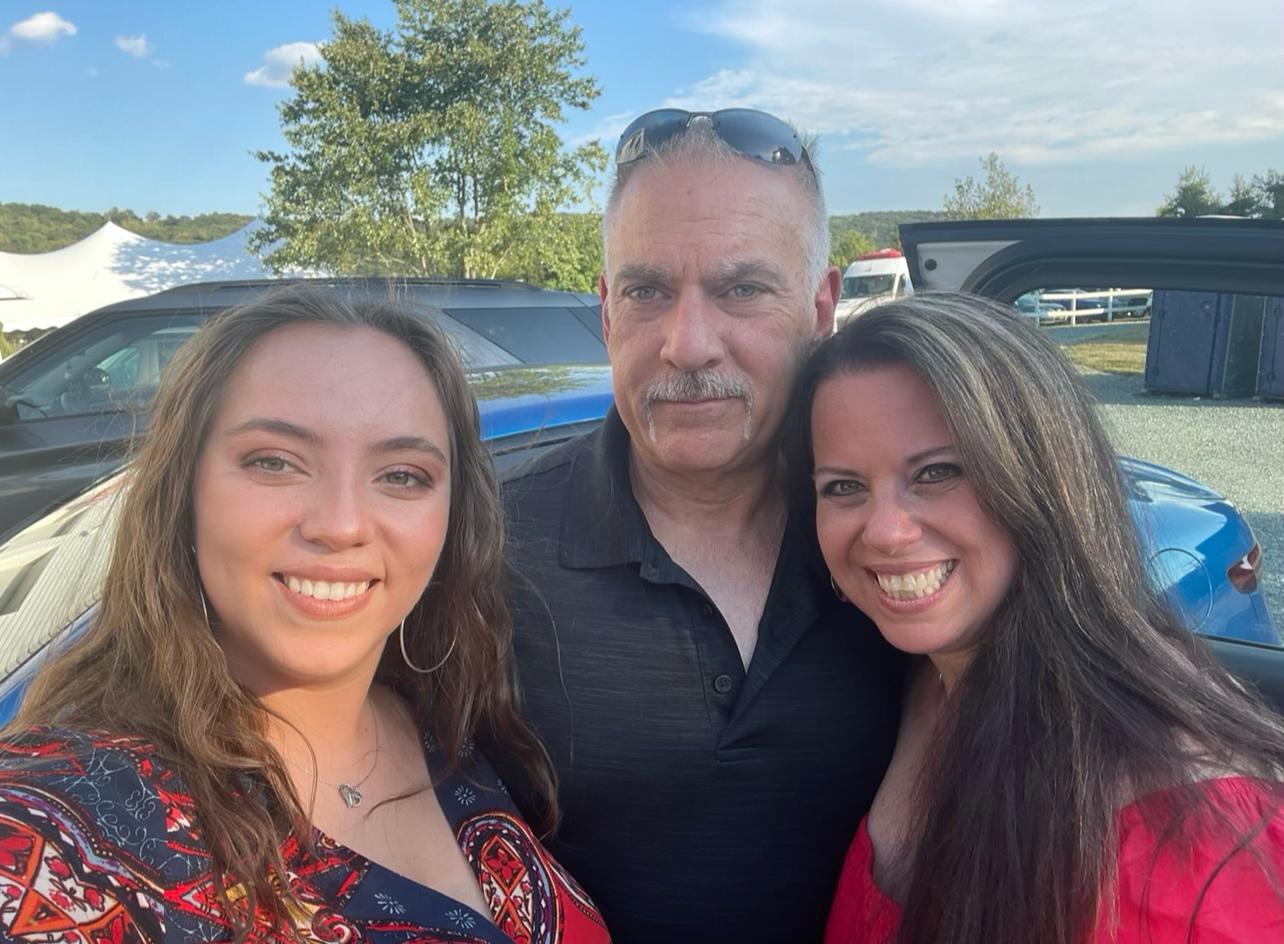
When did the seizures start?
My parents divorced when I was 2. I didn’t know my mother. I had a stepparent, and we didn’t quite get along. I was stressed. I guess my body had been having seizures since I was in third grade, and I didn’t really know. They were just kind of small and weren’t affecting me as much.
I was taken to the Boston Lahey Clinic and went through CAT scans, sleep tests, and everything. Finally, the diagnosis of seizures was made when I was in the 7th grade. But then I grew out of it as I aged, and gradually I became very athletic. They stopped until I was about 30 and had my daughter. I ended up having them a couple more times, and since then I haven’t had them.
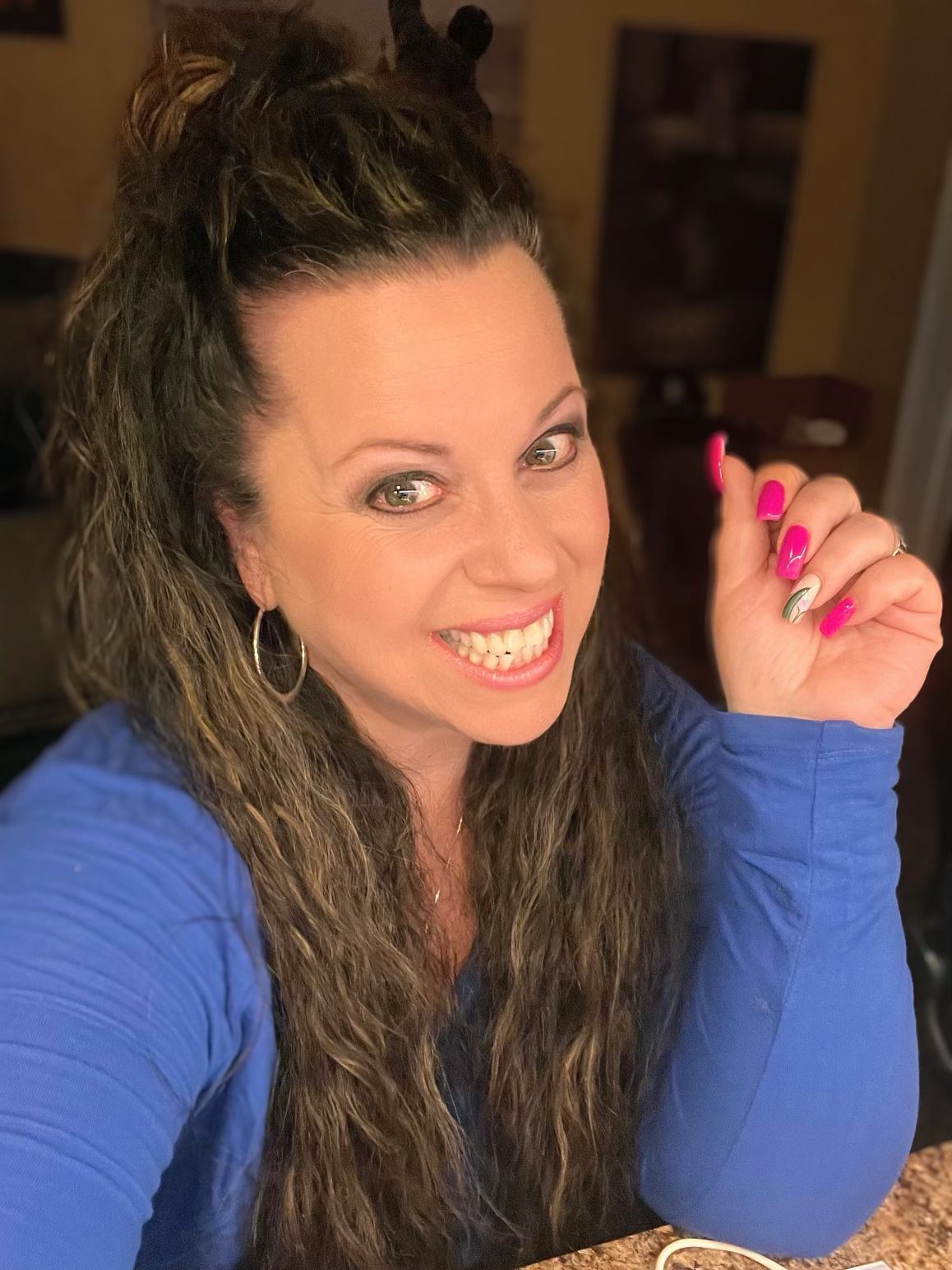
When were you diagnosed?
I wasn’t diagnosed until I was 50. For a long time, I had swelling in my hands, but I never thought there was a problem. I just knew that when I got hot, my hands were really bad; or when my hands got really cold, or when my feet got cold, it would hurt. I just thought there was something wrong with me, so I never paid attention to it.
When I was 45, all of a sudden I started having lots of digestive problems. They had to open up a duct in my system since bile was always building up. It was one thing after another. I had endoscopies and colonoscopies; none of them showed any cancer or anything like that, so I thought I was fine, but I wasn’t. Nobody could figure out what was causing all these things and why I needed to go through all these tests. I’d have episodes where my enzymes would shoot right through the roof, but nobody knew the reason behind it. I had to have another procedure called an ERCP, which diagnosed me with acute pancreatitis. They were like, “This is something really nobody ever gets.” But for some reason I did.
In April of last year, I retired from my position in the construction business with my family because my middle finger was hurting really badly.
Two weeks later, it was getting worse, and then it swelled. I was on the phone with somebody, and when I looked over, I realized my right hand had started swelling badly and wasn’t recognizable. I was having a hard time typing because I couldn’t bend my fingers. I was like, “What the heck?” and “How does it go from the left hand to the right? It’s not possible.”
The doctor calls me, and she explains to me that I’ve been diagnosed with CREST. I asked her, ‘What the hell is that?” and she explained it to me. That night, I ended up in the ER because the pain and swelling kept worsening. They confirmed the diagnosis of Raynaud’s.
My skin is thickening around my lower legs. I have markings all over my face. I have a heart condition. My lungs are inflamed, and I have acid reflux. It’s affecting my vessels. The cold weather is not my friend – everything hurts then. My body is not functioning properly. Some days are good. Some days are not good, and I just keep on going because I don’t want to stop. I feel like there’s got to be a win somewhere along this road. I’m not sure where or why, but I just feel like there should be. That’s how the journey has been.
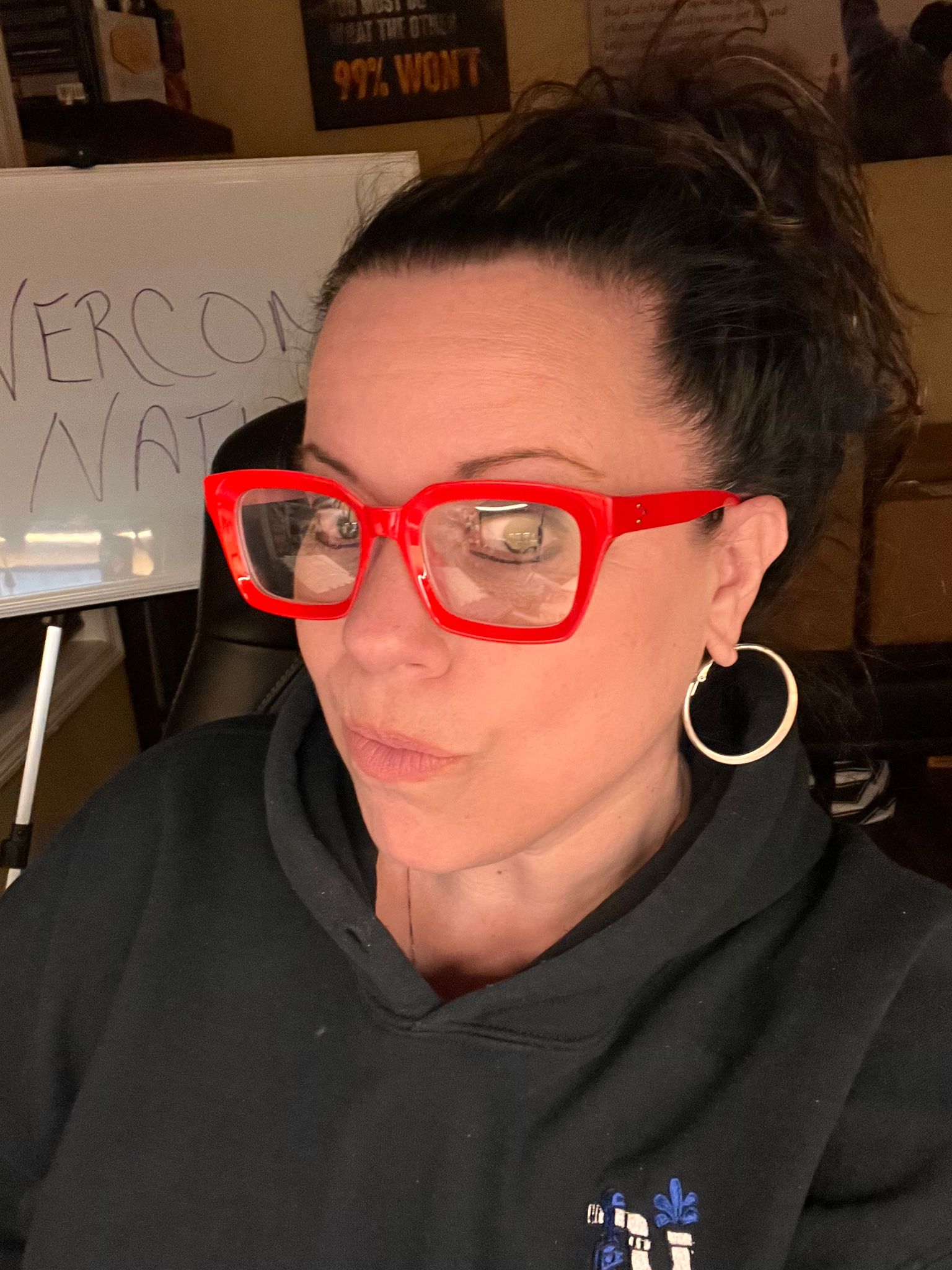
How has scleroderma affected your life?
I have naturally curly, wavy hair, and I always blow it out. There are times when I’m just like, “I’ve just got to leave it as it is because I can’t hold the brush or the dryer.” When I look at myself, I see all this curly hair, and it’s like, “Oh, well, this is me now…” So it affects certain things.
It’s affected how I brush my teeth. It’s affected me so much that I can’t do promotional walks like March of Dimes anymore. I can’t be on my feet that long. I can’t be in the sun like I used to. Even when cooking, I have to make sure that the meals are easier. I can’t do all the cutting that I used to do right, even holding a pot is hard. It’s taken a toll and changed things. But at the same time, I’m like, “You know, it’s just a quicker dinner, but it tastes just as good.”
Getting into bed, I have to sit up because I can’t lay down flat. I had to get used to sleeping while sitting up. I had a few nights where I had to come out of my bedroom and sit straight up on the recliner because the pain was so bad. I get things like heart palpitations. Sometimes, it’s bad when I walk 50 feet. Other times, I can do 150 feet with almost nothing wrong.
You’ve got to find a balance of adjustments that works for you. I’ve learned to adapt.
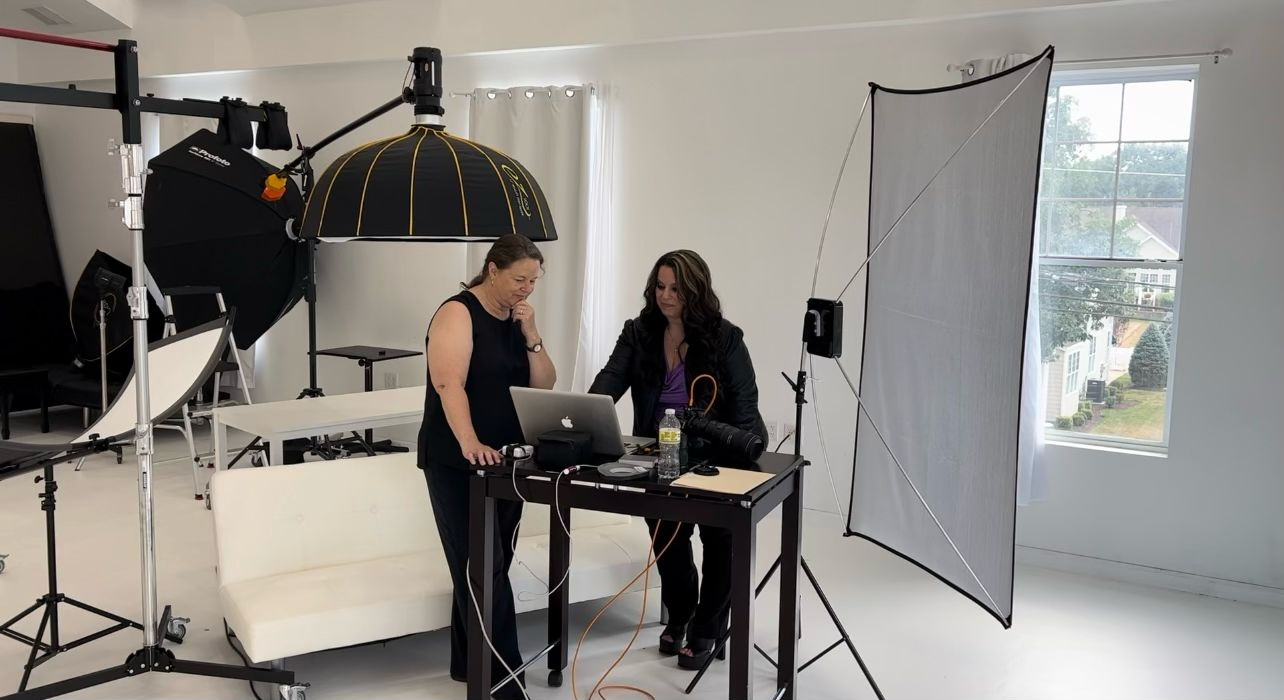
Please introduce yourself
The symptoms are progressively getting worse. My hands and blood vessels got worse; the pain is in my fingertips and toes. It feels like I have these tight bands attacking my feet. My joints are a lot worse than I am willing to admit, as are the markings on my face. I’ve got dental problems now.
And what’s crazy is that I was always dependent on supplements. I’ve always tried to have good nutrition. I’m not big on medication. So when they offered me pain management, I was like, “You know, I’ll deal with the pain.” I’d rather take a bath and add some salt.
Before I took painkillers, they’d gotten worse. And I’m doing pretty much all of the things to try and slow it down. I’ve probably been eating the best I have in years.
Have you tried any other treatments?
I’m not going to lie; I refuse to take medication. Here’s why. I had seizures when I was younger. They had me on eight medications at one point, to the point that I got lost, driving from one town to another, and I thought to myself, “This cannot be it.” I can’t keep taking medication like that. I got myself off the medication and did everything naturally. And luckily for me, it worked. So when it came to scleroderma, they wanted to start me on medication for my heart; it just wasn’t reacting well. I stopped it.
So there are bad days. But yeah, I end up soaking and stretching. I don’t abuse my body as much as I used to, except for something like weightlifting. I don’t do that anymore because I don’t want to tear something up. My doctor says to just keep walking. I’ll do maybe 2 pounds’ worth of weights, but I won’t lift like I used to.
How do you manage your symptoms without medication?
I’m very big on CBD oil. It has eased my pain. People say that it rebuilds your endocannabinoid system. I don’t have a guarantee, and most doctors don’t know anything about that. But one doctor said, “If it’s working, keep doing it.” So I just keep doing it.
The other thing that I’ve been working on is getting rid of all toxins. I’m trying to wash everything and use the least amount of toxins. And here I am, the proud finder of a product that has no toxins in it. I’ve changed my lifestyle. I’ve changed all kinds of stuff, and I do find things are better since I have changed all of that. I feel like my face is not getting worse. I don’t know if that’s just a coincidence, but I’ll take it for a while.
Why share your story?
It’s really funny. I’m happily married, and I have an engagement ring. It’s kind of large; people notice it all the time. I post with all my jewelry and also workout in it, never taking it off. But one day, people saw that it was not on my finger. They were starting to spread rumors, and I thought, “The truth needs to come out. I’m not getting divorced.” So I shared the story of what happened and that my hands had swollen so badly that I couldn’t get my ring on.
That’s how the social media part hit, and then a good friend of mine, who is just a guy who loved God and feared women, said to me, “You need to share your story.” I asked “Why?” and he’s like, “There are people out there who need to know this. There are people out there that are struggling, some of whom may be suicidal, because this changes who you are.” It gets worse, I’m sure. There are women whose entire career paths have been impacted, as well as their marriages and childrearing.
I guess I’ve noticed how my husband is so good to me and scared for me. His fear will manifest itself at times. He’ll get frustrated when he sees me limping or when I can’t put pressure on one side. He’ll get upset.
That’s why the story had to come out, because people are struggling. I started to share. I have a hashtag. I also wanted to share because of my self-made success; I want people to know that they can still do it. I want people to know that it’s not over until it’s over. Fight the fight, dig deep, and just always look for the win – even if it’s a small one.
Somebody said she couldn’t make a certain amount of money because she was disabled. And it got me thinking that, when you are diagnosed with the disease, the government says, “I’m sorry you can’t make any more money, and we don’t subsidize you anymore.” Now I’m like, “I’ll never allow the government to tell me I can’t win.” That was another thing for me to share with women. I’ve built successful businesses, and they can too.
I don’t only share the good days on social media. I thought that I should share the bad days. I didn’t realize how many people needed to know someone’s story. And when I can’t walk or do things like that. I haven’t shared all of that.
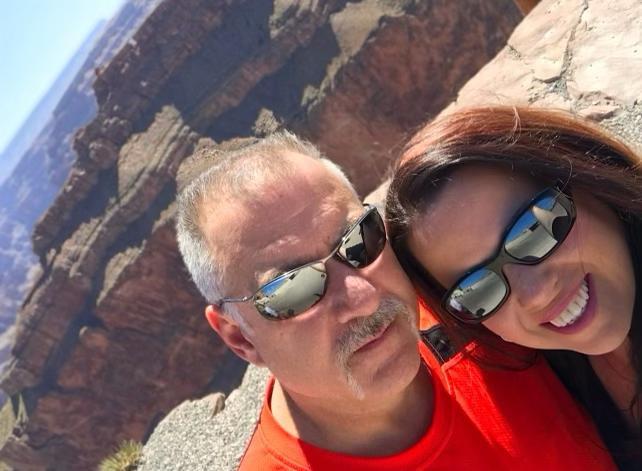
How is your support system?
When I first got diagnosed, I couldn’t use my hands at all, and my husband went around and changed every single doorknob to a lever so I could just press it down. He’s my biggest supporter, and my daughter is as well.
I did join a group on Facebook. I’m not that active in it, but I do check and support people. I stay focused on the positive. I’ll fight right to the end.
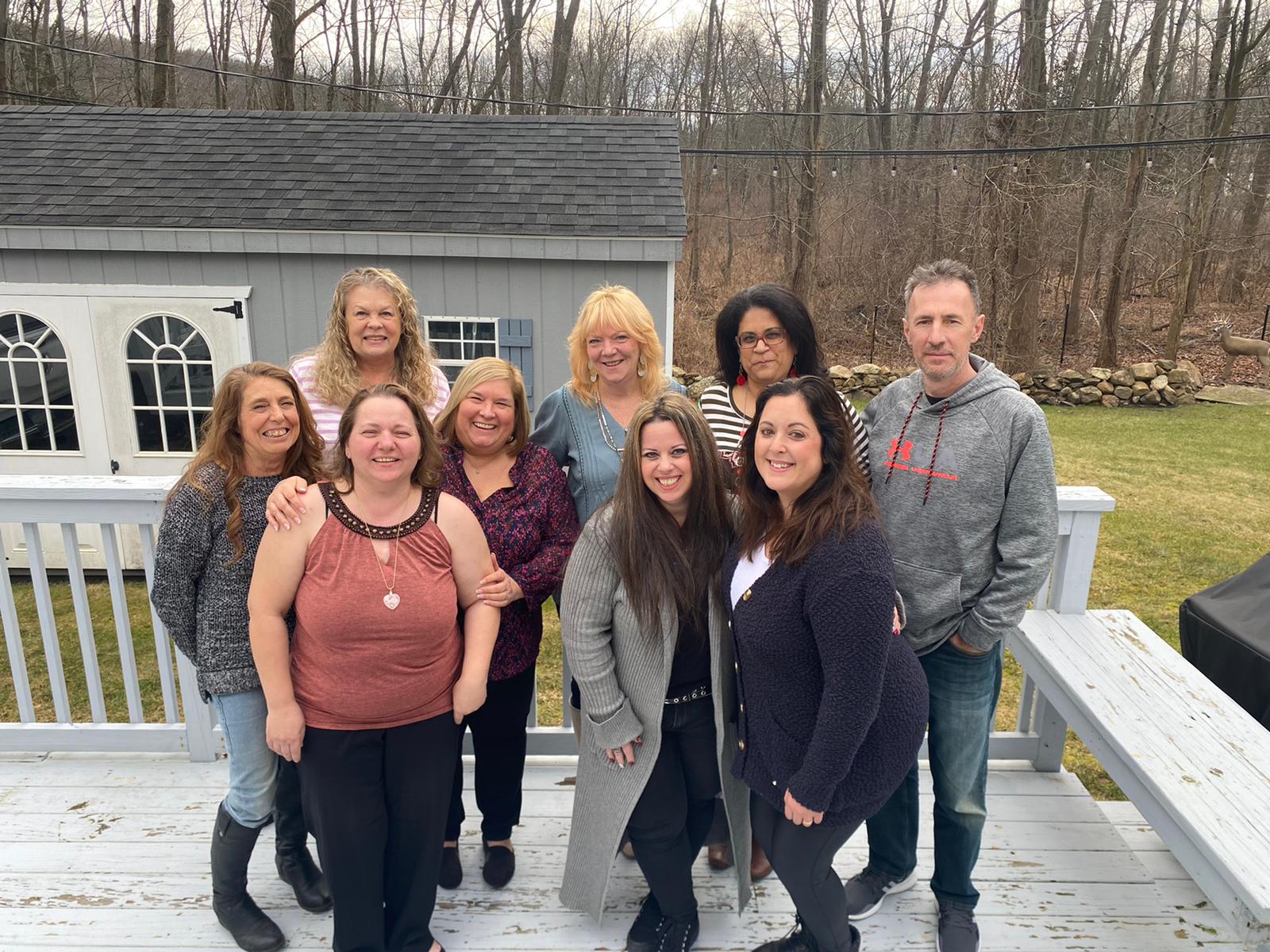
What are your hobbies and interests?
I’m not a photographer, but I love taking pictures. I take pictures of nature, or I’ll have my daughter go down to where I grew up in town, and then I take pictures over there. It kind of gets my mind off of everything else.
I coach a lot of women in business, so that’s my next love. That’s my passion: for women to overcome. There was a time in my life when I had $11 in my bank account. I had a one-year-old on my hip, and I was going through a divorce and needed money. I was so broke that it was like sinking.
I was mentored by a couple of millionaires about building businesses without a lot of overhead. I got my education and slowly paid off my debt. That was a big one. Then, I was able to be there for my daughter. She came to work with me as a toddler.
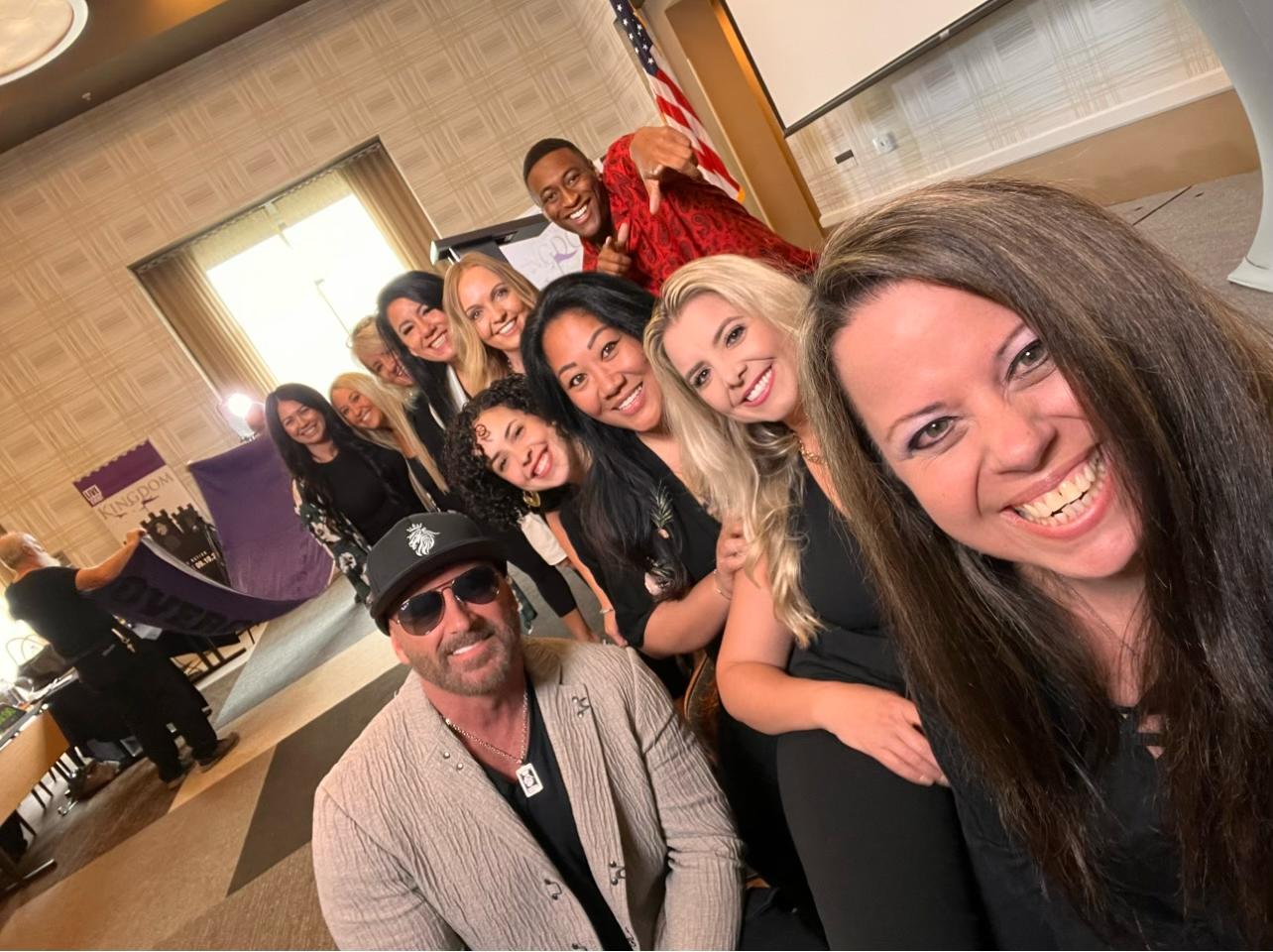
How are your connections with friends?
My connection with friends took a toll because I was the friend who always reached out to everyone. When I got diagnosed and was having all these bad days, I stopped talking to my friends. It was almost two months before I spoke to anyone.
I didn’t really talk about it, so my friends didn’t know the depth of what goes on behind closed doors; I couldn’t expect them to understand, because how could they if I’m not explaining it?
But now that they understand, I’m a little bit more forthright about what’s going on. I will say that I can’t stand up today, that the pain in my legs is really bad, or that my feet are hurting. I will share it now. I never shared anything. I was never a sharer in life. Now I’m opening up to that concept.
Is there anything you wish you knew earlier?
I wish I had a deeper, more in-depth understanding of gut health and how your body reacts to food. I’ve read about other women and how having too much dairy or even a glass of wine aggravates their symptoms. I don’t drink, so it doesn’t happen to me. But I can see where food, if the wrong oils and things like that are used, can affect the body. I wish I were more educated.
Have you met anyone else with scleroderma?
Many years ago, my dad was working for a trucking company, and the owner’s wife died of scleroderma. I’ve been talking with her daughter and sharing my journey and what it does to your body. That’s been my connection. But I haven’t come across anyone else in my area other than her who has ever dealt with or seen this disease.
Has scleroderma caused any financial burdens?
The expenses are there, but fortunately for me, after going through financial hardship in my 30s, I’ve gotten myself into a good financial place now. I can just write a check and it’s there. I’m taken care of. I have insurance, but it only pays for certain things, and I have to cover the rest. There’s been a lot of money going out.
The blood works are most expensive because they do a lot of it to see your progression. I was also looking for a rheumatologist, so that was $600 a visit. Also, to do the natural side – that’s out of my pocket.
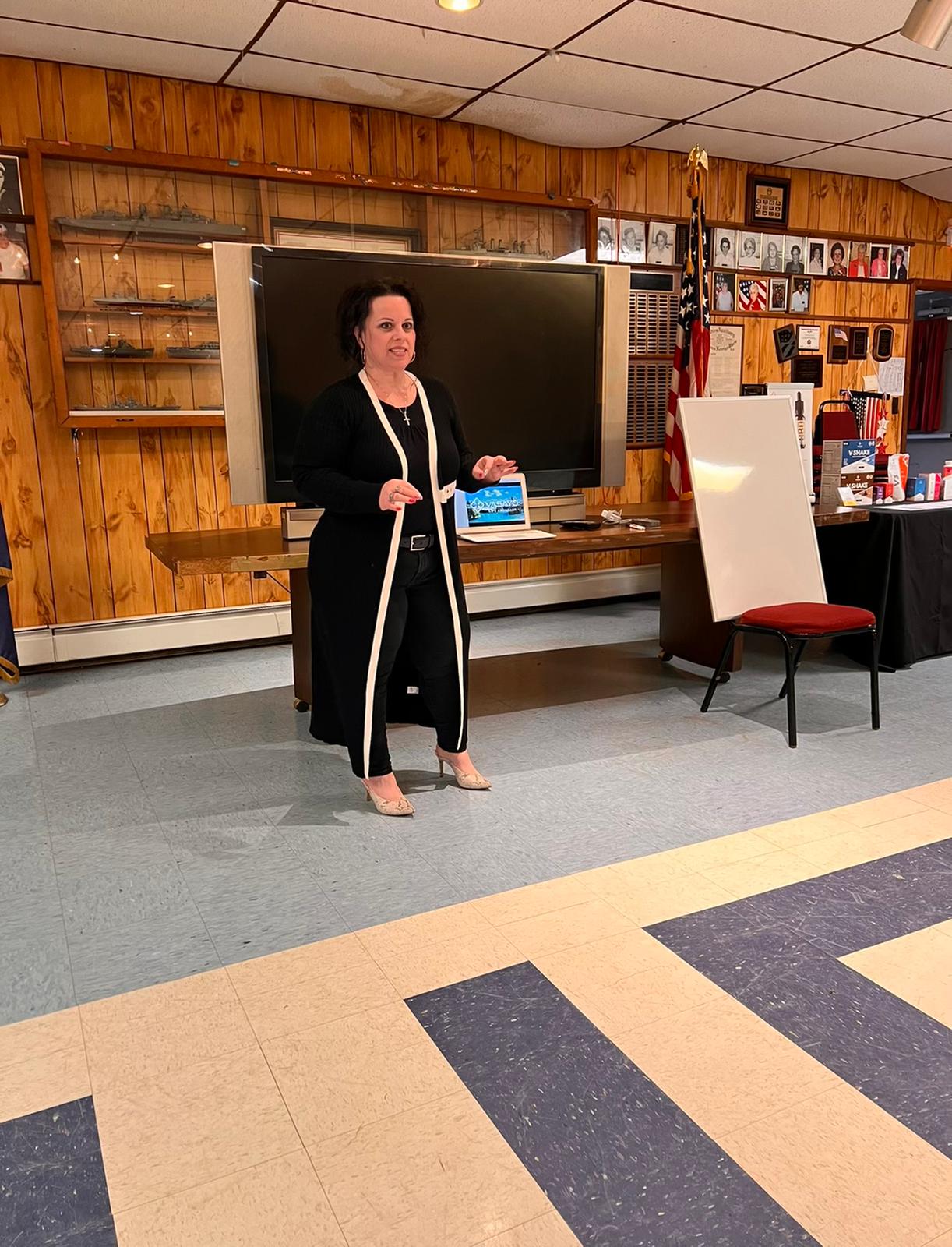
What is your advice for those with scleroderma?
The best thing is to get in a room with people who have some better information and advice, which I didn’t know about. Look for someone extremely knowledgeable about your body to help you put the right foods in your body and get rid of the stuff that’s hung up in your intestines. Don’t just take one person’s take on it; look around and get to know the people a little bit. You know who you are.
I beg you to do two things: one, drink a lot of water and get your body hydrated. The second thing is to reduce stress, which comes in all shapes and sizes. Right before I was diagnosed, I was going through a tremendous amount of stress for about 4 years, and so the timeline puts it all together: having all these digestive issues for 4 or 5 years. I beg everyone to please get rid of the toxicity in their lives; it does not benefit you at all.
What is your advice for building a strong mindset?
You know your mindset; if you’re not learning every day, then you’re just stagnant. It’s not just learning about the disease. But there are so many things out there that can elevate you mentally.
There are books to read. There are podcasts. There are all kinds of amazing things and tools, and they’re free. There’s so much knowledge out there, so educate yourself and improve your life.
Your life is important; it’s so valuable. Don’t just let it go. Don’t just give in. And pray. Get your spiritual side in place. Put your faith together and act on it. Never, never give in to an obstacle or a label.
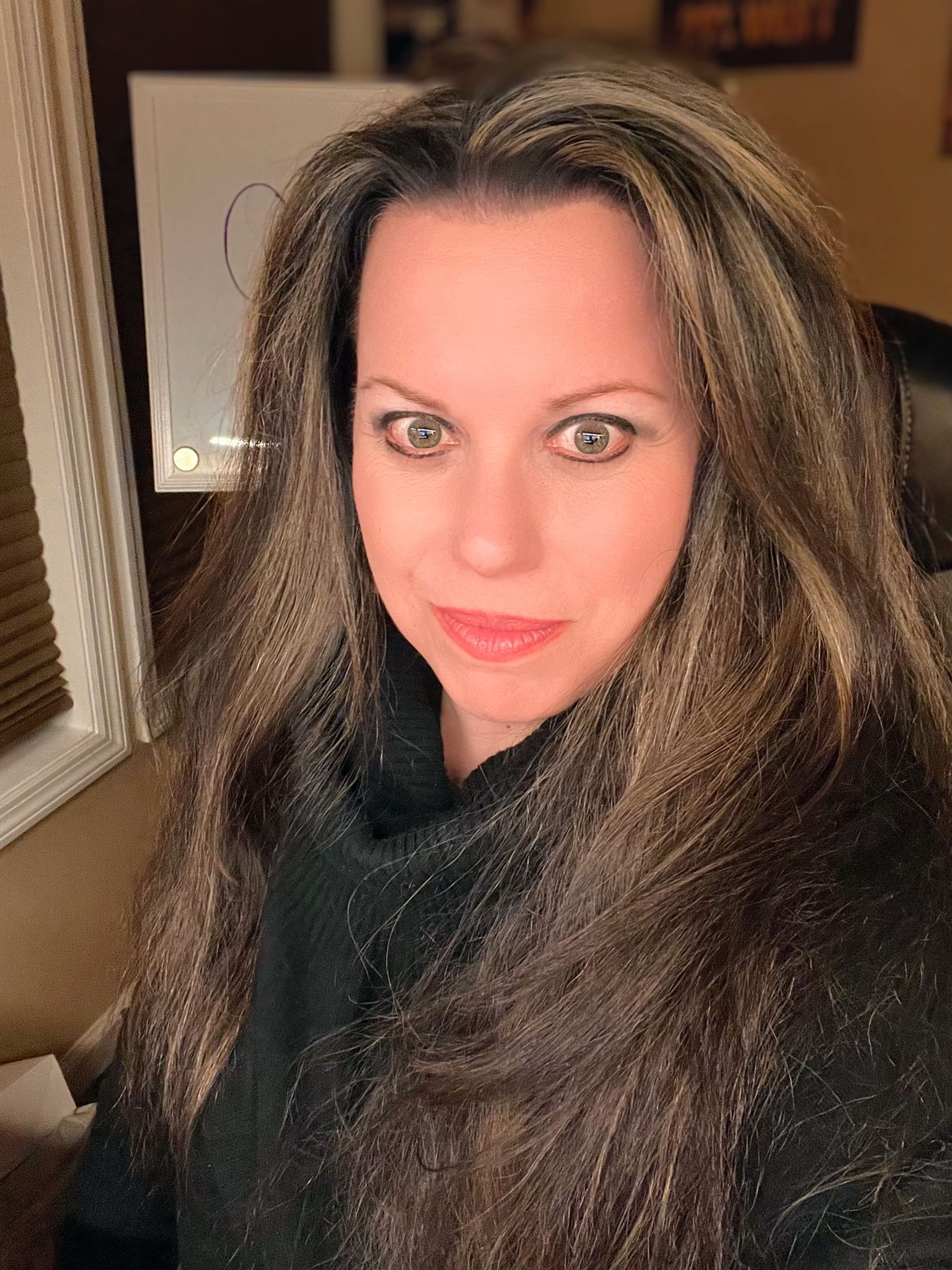
Be sure to follow us on Instagram and Facebook (@sclerounited) to see more scleroderma warriors’ journeys in our weekly Sclero Sunday series.
Are you a scleroderma warrior? We’d love to interview you for Scleroderma Stories! Please visit tinyurl.com/share-my-sclero-story or email us at contact@sclerounited.us
